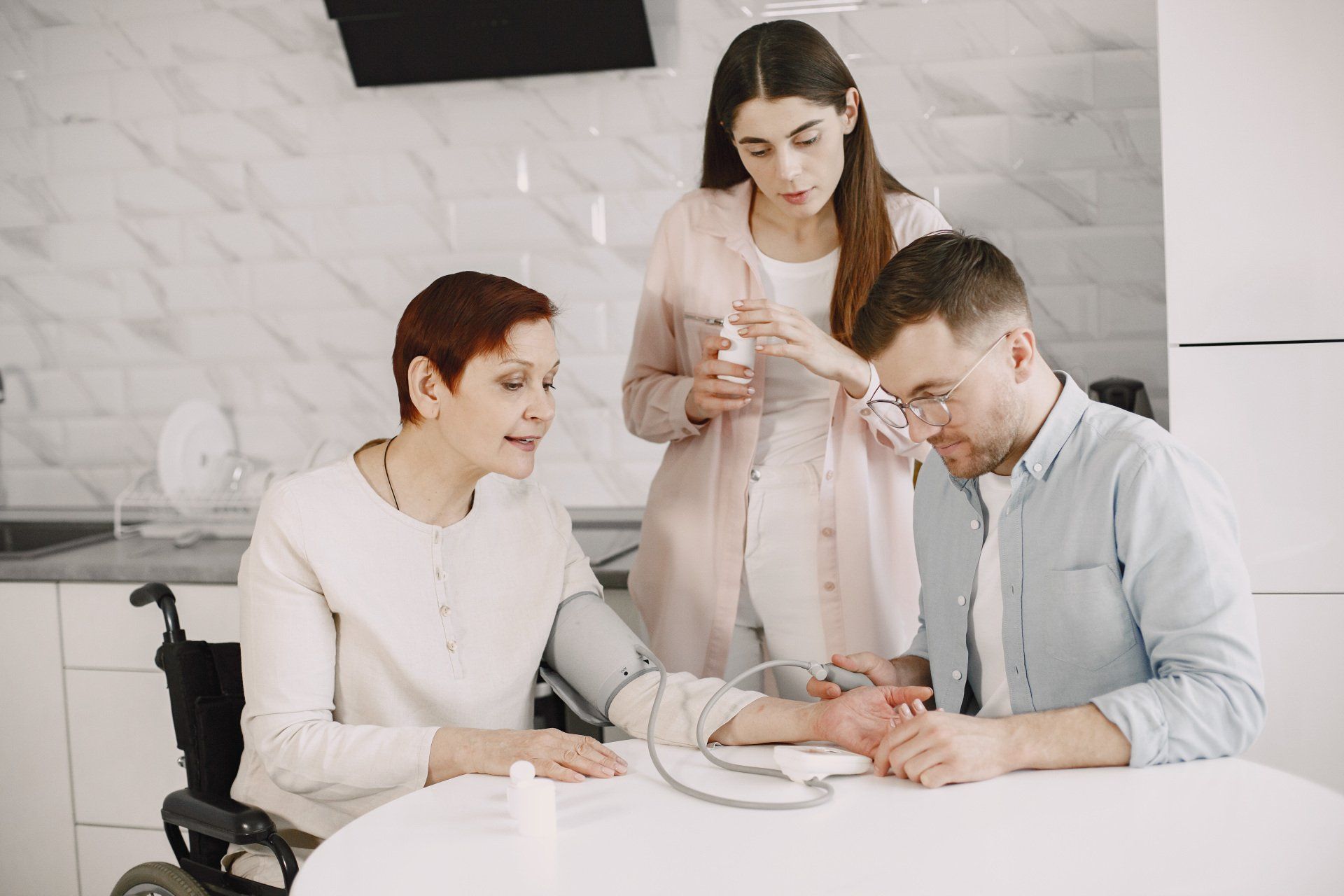Small Intestinal Bacterial Overgrowth(SIBO) Specialist in London
Expert care for Your SIBO Problem - Free Consultations

Small intestinal bacterial overgrowth (SIBO), defined as excessive bacteria in the small intestine, remains a poorly understood disease. Initially thought to occur in only a small number of patients, it is now apparent that this disorder is more prevalent than previously thought. Patients with SIBO vary in presentation, from being only mildly symptomatic to suffering from chronic diarrhea, weight loss, and malabsorption.
A number of diagnostic tests are currently available, although the optimal treatment regimen remains elusive. Recently there has been renewed interest in SIBO and its putative association with irritable bowel syndrome. In this comprehensive review, we will discuss the epidemiology, pathogenesis, clinical manifestations, diagnosis, and treatment of SIBO.
Small Intestinal Bacterial Overgrowth (SIBO)

Why do I need Endoscopy?
Our consultants will often recommend endoscopy to evaluate:
- For early cancer detection
- Stomach pain
- Ulcers, gastritis, or difficulty swallowing
- Digestive system bleeding
- Changes in bowel habits (chronic constipation or diarrhea)
- Polyps or growths in the colon
- Weakness or fatigue
- Unexplained weight loss
There are 3 general types of SIBO, which are categorized based on which gas the microbes are producing in your small intestine.
- Hydrogen SIBO
- Methane SIBO
- Hydrogen sulfide SIBO
Each of these types of SIBO require a different approach when it comes to treatment, so knowing which kind you have is extremely important! Keep in mind; it is absolutely possible to have multiple kinds of overgrowth at the same time.
Hydrogen SIBO: This is the most common type of SIBO. These bacteria produce hydrogen gas by fermenting carbohydrates in the digestive tract.
Methane SIBO: This type of SIBO is the second most common. Methanogens produce methane from hydrogen gas and carbon dioxide. Technically, these microbes are archaea and not actually bacteria.
Hydrogen sulfide SIBO: This type of SIBO is a bit different from the first two. Hydrogen sulfide (H2S) is a gas that is actually produced by the human body! H2S is produced throughout the GI tract in a healthy body. In healthy levels, H2S helps to maintain the integrity of the gut lining. However, in excess amounts H2S is actually considered a neurotoxin.
Types of Small Intestinal Bacterial Overgrowth (SIBO)

There are 3 general types of SIBO, which are categorized based on which gas the microbes are producing in your small intestine.
- Hydrogen SIBO
- Methane SIBO
- Hydrogen sulfide SIBO
Each of these types of SIBO require a different approach when it comes to treatment, so knowing which kind you have is extremely important! Keep in mind; it is absolutely possible to have multiple kinds of overgrowth at the same time.
Hydrogen SIBO: This is the most common type of SIBO. These bacteria produce hydrogen gas by fermenting carbohydrates in the digestive tract.
Methane SIBO: This type of SIBO is the second most common. Methanogens produce methane from hydrogen gas and carbon dioxide. Technically, these microbes are archaea and not actually bacteria.
Hydrogen sulfide SIBO: This type of SIBO is a bit different from the first two. Hydrogen sulfide (H2S) is a gas that is actually produced by the human body! H2S is produced throughout the GI tract in a healthy body. In healthy levels, H2S helps to maintain the integrity of the gut lining. However, in excess amounts H2S is actually considered a neurotoxin.
Types of Small Intestinal Bacterial Overgrowth (SIBO)
SIBO symptoms can be vague and hard to pin down. Often there are underlying disease processes that have given bacteria the chance to overgrow in the small intestine. It can be hard to tease out and separate the underlying disease symptoms and the SIBO symptoms.
- Belly pain
- Queasiness
- Bloating
- Uncomfortable fullness after eating
- Loss of appetite
- Indigestion
- Passing a lot of gas
- Diarrhea or constipation
- Fatigue
- Weakness
Symptoms of Small Intestinal Bacterial Overgrowth (SIBO)

Sometimes, Crohn’s disease can lead to serious complications.
- Abscess: Infected fluid collection in a tissue cavity
- Anemia: Over time, this can be caused by blood loss in the stool or lack of iron or vitamin B12
- Bone loss: People with inflammatory bowel disease (IBD)—like Crohn’s—often have decreased vitamin D, which can lead to bone loss
- Bowel obstruction: Crohn’s affects the thickness of the intestinal wall, and over time parts of the bowel can scar and narrow—which may block the flow of digestion
- Fissures: Tears in the anus lining which can cause pain and bleeding (especially during bowel movements)
- Fistula: Abnormal tunnels that form between 2 structures of the body which are caused by inflammation
- Increased risk of colon cancer: Long-term inflammation of the colon can lead to colon dysplasia
- Malabsorption and malnutrition: This includes deficiency of vitamins and minerals—specifically, inflammation of the small intestine can decrease absorption of iron and vitamin B12
- Perforated bowel: Chronic inflammation can weaken the intestinal wall to the extent that a hole develops
- Stricture: Narrowing of the intestine, resulting from chronic inflammation
- Ulcers: Chronic inflammation can lead to open sores (ulcers) anywhere in your digestive tract—from the mouth to anus
What Are Complications of Crohn’s Disease?

Other conditions that SIBO could be associated with:
Conditions that affect SIBO:
- Viral gastroenteritis, or a stomach bug
- Celiac disease
- Crohn’s disease
- Hypochlorhydria, or low stomach acid levels
- Gastroparesis
- Nerve damage
- Cirrhosis
- Portal hypertension
- Irritable bowel syndrome
- Certain gastric bypass procedures
- Surgeries that cause strictures or adhesions
Early Screening & Diagnosis of SIBO
Symptoms of SIBO can look like those of many other conditions. If you’ve had symptoms that don’t go away, see a gastroenterologist. This type of doctor specializes in the digestive system.
Based on your symptoms, doctors may suggest:
- Imaging tests like as X-rays, CT, or Endoscopy to look for physical problems in your intestines
- Blood tests to check for anemia or a lack of vitamins
- Stool tests that look for problems like how much fat your body is absorbing
- Small intestine aspirate and fluid culture. Your doctor passes a long, thin tube called an endoscope through your digestive tract to your small intestine. They take a small sample of the fluid inside and do a lab test called a culture to see what kind of bacteria it has.
- Hydrogen breath test. First, you drink a sugary beverage. Over the next 3 hours, you breathe into a balloon every 15 minutes. This air is tested to see if it has high levels of hydrogen or methane to suggest SIBO.

You can book your Free Consultations with our GP on the same day or other day based on your availability.
At Chartwell, we provide Free Consultations to patients with a highly experienced Medical Practitioner to understand the sign and symptoms of SIBO.
During Free Consultations, our practitioners will discuss the SIBO's symptoms you have, and the practitioner will advise the tests you need.
If you already have a referral from NHS
If you have a referral from your GP stating the test required, please send the referral to our team, once received a member of our team will contact you by telephone to arrange your test.
SIBO Screening Cost:
Prices detailed below:
Menu
A FREE 30 minute video consultation
Colonoscopy & Gastroscopy
Includes: FBC, U&Es, LFT, Bone, CRP
The procedure includes a medical report, the results of any biopsies taken, and a face to face follow up consultation on the day of your procedure.

Free Consultations:
We at Chartwell provide Free Consultations with our highly qualified practitioners for our patients.
Same Day Consultation:
You can Book Your Free Consultations with our Practitioner on same day or based on your availability.
Post Opp Care:
Our staff are on hand before, during and after your procedure, routinely assessing your condition.
Interest Free Credit:
Can't pay today? No problem! At Chartwell, we want you to be able to have the best option for our patients, so we offer a range of interest free options.
Why Chartwell Hospital
Free Consultations:
We at Chartwell provide Free Consultations with our highly qualified practitioners for our patients.
Same Day Consultation:
You can Book Your Free Consultations with our Practitioner on same day or based on your availability.
Post Opp Care:
Our staff are on hand before, during and after your procedure, routinely assessing your condition.
Interest Free Credit:
Can't pay today? No problem! At Chartwell, we want you to be able to have the best option for our patients, so we offer a range of interest free options.
Why Chartwell Hospital
Free Consultations:
We at Chartwell provide Free Consultations with our highly qualified practitioners for our patients.
Same Day Consultation:
You can Book Your Free Consultations with our Practitioner on same day or based on your availability.
Post Opp Care:
Our staff are on hand before, during and after your procedure, routinely assessing your condition.
Interest Free Credit:
Can't pay today? No problem! At Chartwell, we want you to be able to have the best option for our patients, so we offer a range of interest free options.
Why Chartwell Hospital
-
Where is SIBO pain located?
SIBO causes pain in the abdomen.
-
What causes SIBO?
There are plenty of potential culprits. Factors that increase your risk of developing SIBO include:
Lack of barriers: Natural antimicrobial barriers like stomach acid and pancreatic enzymes prevent bacteria from hanging out in the small bowel. When these barriers are weakened because of inflammatory bowel disease (IBD), pancreatic insufficiency or other issues, bacteria can seep into the small intestine. Medications that change the pH level of stomach acid (like proton pump inhibitors used to treat acid reflux) can also weaken your body’s natural barriers.
Immune deficiencies: Part of your immune system’s job is to crowd out unhealthy bacteria. So if you have a health condition that compromises your immune system, you’re at greater risk of developing SIBO. People who have weakened immune systems, including the elderly and people who have HIV, cancer and celiac disease, have a greater risk of developing SIBO.
Anatomical abnormalities: Ever had bariatric surgery or a procedure to resect part of your intestine? These procedures could result in anatomical changes to the intestines that create an ideal environment for bacteria to grow. Bowel adhesions and scar tissue can also cause obstructions that lead to SIBO. Women are more likely to suffer from SIBO in part because they are more likely to have IBS, which increases the risk.
Constipating conditions: Health conditions, such as hypothyroidism, scleroderma and nervous system disorders that interfere with your body’s ability to move waste through the digestive tract increase the risk of SIBO. Medications such as narcotics can also slow down the gut and increase your risk.
-
Do you have waiting lists?
No, we provide FREE consultation on the same day or some other day based on your availability.
-
How does SIBO affect my body?
Bacteria in the small intestine digest carbohydrates and convert them into gas and short-chain fatty acids. More bacteria can mean more gas and other byproducts, which often triggers diarrhea. The bacteria also consume proteins and vitamin B12 meant for us, and bile salts that are supposed to be there to help you digest fats. All of this leads to poor digestion of fats and poor absorption of nutrients, especially calcium and fat-soluble vitamins. The result is a variety of gastrointestinal symptoms in the short term, and malnutrition in the longer term. Over time, vitamin and mineral deficiencies can cause lasting damage to your bones and nervous system.
FAQs: